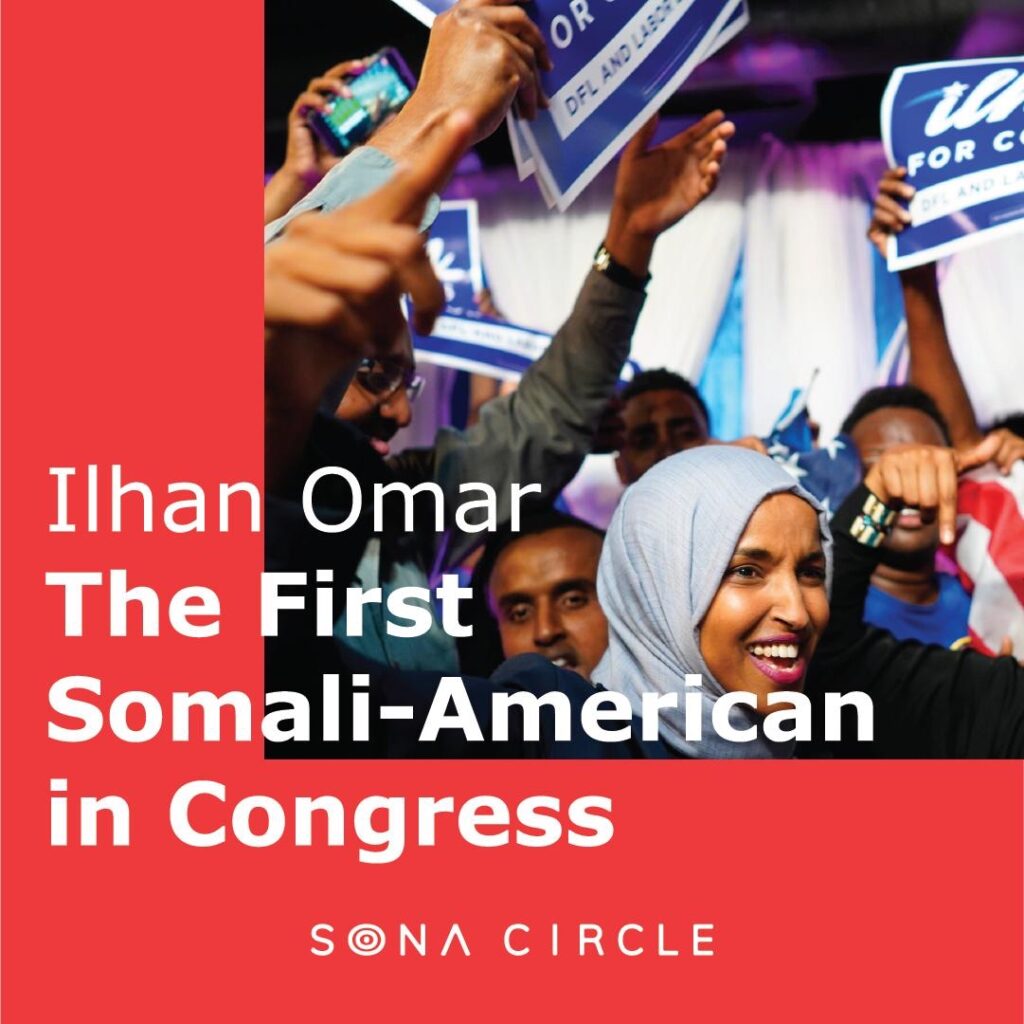Triumph In Adversity: Ilhan Omar

For over 100 years, March 8th has been International Women’s Day. This is a celebration ofwomen’s social, economic and cultural achievements in the face of discrimination and hardship.
Today we celebrate Somali-American legislator Ilhan Omar and her incredible rise from refugee to representative in the most powerful country on earth.
Early life – From Mogadishu to Minneapolis
Ilhan Omar is no stranger to adversity. Whilst growing up in Somalia, she experienced trauma from a young age with her mother passing away whilst she was just two years old. The youngest of seven siblings, Omar was raised by her father and grew up in close proximity to her grandparents, aunts and uncles within a family unit that disregarded the gender roles adhered to by many Somali families. Omar enjoyed reading in her early years with her family home containing numerous history and politics books, which may be credited for her early interests in social equality.
Omar’s life was uprooted by the arrival of the Somali Civil War in 1991 which created a brutal environment “where one day you’re all family and next day some members no longer have the right to exist”. Opting to escape the conditions in her home country, her family found themselves living in the squalid Dadaab refugee camp in Kenya for the next four years, before gaining asylum in the US in 1995.
First steps into politics
Omar first became engaged in politics at the age of 14, whilst translating for her grandfather and other Somalis at local Democratic-Farmer-Labor Party meetings and precinct caucuses. Her political fascination grew stronger at age 17, when she was granted U.S. citizenship, and finally saw her opportunity to fight for the country she had lived in most of her life.
Ilhan Omar, first stepped into the political world after leaving behind a career in education. Her first role saw her undertake the management of city council campaigns in Minneapolis, and after leading two separate campaigns into office, she was finally rewarded with a role as a senior aid in Minneapolis city hall in 2013.
Omar pushed the heights of her achievements yet again in 2016, becoming the first Somali American legislator, when she ran on behalf of the DFL for state representative for district 60B (Minnesota’s State House).
Fighting for justice
Since coming to office, Ilhan Omar has courageously stood up for the rights of refugees, workers, and people of colour.
Together with colleagues like Alexandria Ocasio-Cortez and Bernie Sanders, she has worked tirelessly to promote progressive policies in the US. These include ‘Medicare for all’ which – like the NHS in the UK – would make sure everyone in the US had access to affordable healthcare. Through her campaigning she has helped transform it from a fringe policy into something most Americans support.
She has also consistently worked to increase the minimum wage for workers and helped successfully convince Bidens government to provide 1.9 trillion dollars to support working class people who have lost their jobs due to COVID-19.
Omar is a fierce defender of refugees and POC across the world. She led the way in highlighting the horrific conditions Latin American refugees and migrants were subjected to in President Trump’s camps at the border between Mexico and the US. She has also continued to push new president Joe Biden to close them and provide humane shelter to migrants.
Most remarkably, she has done all this despite facing regular racist abuse and death threats. Even after white supremacists stormed the capitol and threatened her life, she has refused to stop fighting for social justice and against racism and classism.
The importance of equality
Although International Women’s Day is only on the 8th March, Ilhan Omar’s story and achievements should be celebrated and acknowledged on a daily basis. Her rise from refugee to influential policymaker in the House of Representatives, shows how providing opportunities – such as access to education – to those systematically disadvantaged can help create a progressive society fighting for equality. Not only does Omar’s story demonstrate the need to increase gender parity – but economic and racial parity too.